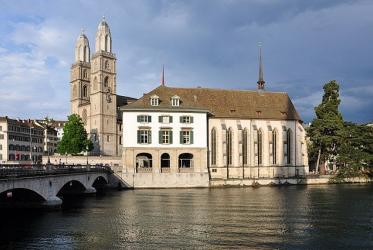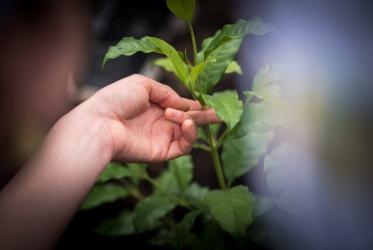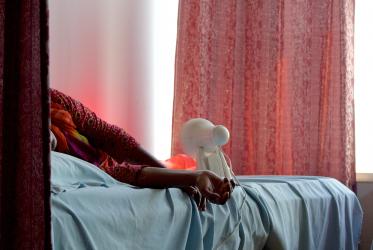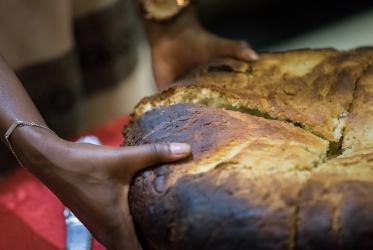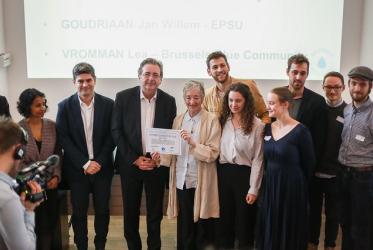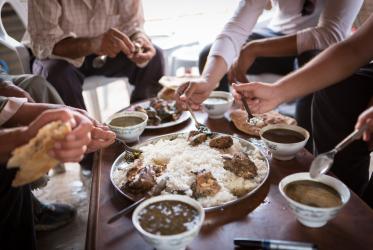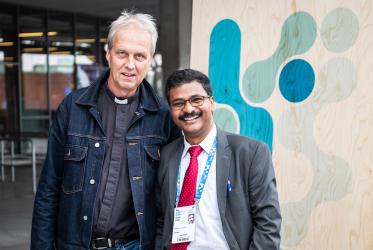Displaying 61 - 80 of 203
Ecumenical conference features theological reflections on ecology
16 February 2021
WCC podcast deals with death and dying
15 December 2020
WCC mourns passing of Hendrew Lusey-Gekawaku
23 October 2020
Faith communities vital in overcoming hunger
18 March 2020
WCC joins gathering of Blue Communities in Brussels
06 December 2019
WCC President Wejryd: ‘Water, in many ways, represents God’
27 September 2019
Water and Faith showcase highlights results of collaboration
26 August 2019
International Labour Organization celebrates 100 years
15 April 2019

